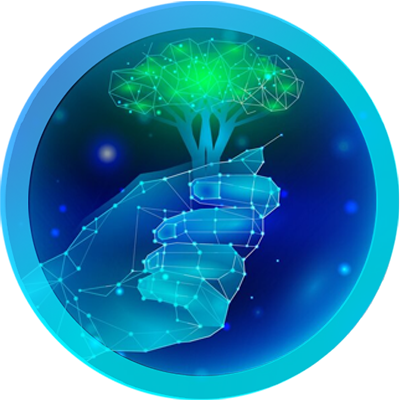
Happiness Tips
Happiness does not have a single, definitive definition. Instead, people view and understand happiness in different ways. Despite this, happiness is an essential component of human existence and life would be meaningless without it. It is impossible for a person to go through life without being happy and joyful. In general, happiness is referred to as the sensation of pleasant emotions, such as joy, contentment, and satisfaction. It is a state of mind.
Let's explore the development of happiness in our daily lives and its significance for our well-being based on the suggestions as stated below. Keep in mind that each person's perception of happiness varies, as does the strategy they employ to achieve it.
Acknowledge and celebrate your minor achievements
Recognize and appreciate your minor achievements. Whether it's completing a work task or mastering a new skill, taking the time to celebrate these wins can boost your confidence and maintain a positive attitude.
Uncovering happiness is a personal journey that is shaped by individual experiences. Incorporate minor daily adjustments that contribute to your overall well-being. Over time, these adjustments can develop into positive habits that pave the way for a happier and healthier version of yourself.


Maintain a regular exercise regimen
Engaging in exercise offers various advantages for the brain. Endorphins, hormones created by the central nervous system and the pituitary gland in the brain, play a key role. These hormones not only help in blocking pain signals but also contribute to a sense of happiness. Consequently, this leads to an instant improvement in mood, with long-lasting effects. Furthermore, exercise can reduce the levels of cortisol and adrenaline in the body, both of which are known to contribute to stress when they are present in high quantities. By lowering these substances, you can alleviate the stress experienced by your brain. It is clear that minimizing negative chemicals and boosting positive ones can greatly enhance feelings of happiness.
Regular physical activity can have a significant and long-lasting effect on the brain, helping to maintain brain function and prevent cognitive decline. This can strengthen the brain's resilience to harmful substances, making it easier to maintain a positive perspective on life.
Set dreams and goals
Striving to achieve your dreams can bring immense value and purpose to your life. When you have a clear vision of your goals and actively pursue them, you are more likely to experience a sense of fulfillment and satisfaction. This can ultimately lead to a greater sense of happiness and contentment in your life. Following your dreams can result in a life-altering transformation, which is fundamental in crafting your destiny. The pursuit of dreams may involve facing challenges and setbacks, but overcoming these obstacles can foster personal growth and progress. The journey towards your dreams can impart valuable lessons on resilience, determination, and the significance of hard work. Following your dreams can enable you to establish a life that is authentic and fulfilling, contributing to an overall sense of well-being and happiness.


Commit to personal growth
Personal growth is the journey towards self-actualization. It involves identifying your strengths and weaknesses, and actively working towards improving yourself in every area of your life. By prioritizing personal development, you are essentially investing in your future happiness and prosperity. Finding activities that bring you joy and push you to grow is paramount. Engaging in such activities will naturally lead to a greater sense of happiness and fulfillment.
Many avenues are open for personal growth that can lead to a rewarding life. Some popular methods include exploring self-help literature, attending personal development workshops and seminars, practicing yoga and meditation, supporting others in their well-being journey, and surrounding yourself with optimistic people. These actions can help you manage stress, develop a positive mindset, feel in control of your life, achieve professional success, and enhance your overall well-being. Advancing personally is a never-ending path, not a conclusive destination. By persevering through challenges and focusing on growth, you will ultimately realize your full potential and experience long-term happiness.
Rest & Rejuvenate
Quality sleep is essential for maintaining both physical and mental well-being, serving as a restorative process for the proper functioning of our bodies and minds. Inadequate sleep can lead to increased susceptibility to illness, weight gain, depression, and impaired cognitive function, including memory and reasoning skills. Conversely, obtaining quality sleep can result in a more positive lifestyle and improved decision-making abilities, often correlated with overall happiness. A well-rested individual is more likely to exhibit a positive mood and effectively manage daily responsibilities, making them more appealing to others. Adequate sleep is essential for regulating hormones such as cortisol (the stress hormone) and serotonin (the “cheerful” hormone), which have a significant impact on our mood and emotional well-being.
Enhance your happiness, resilience, and gratitude by modifying your sleep patterns. Try going to bed earlier, establishing a calming bedtime routine, and avoiding screens before bedtime. These slight changes can result in major enhancements to your general well-being. Keep in mind that opting for more sleep instead of staying up late could be crucial for a happier, more fulfilling life. Prioritizing well-being over stress and starting each day with a positive perspective is key.


Meditate to unearth happiness
Deep within the mind are innate characteristics of well-being and clarity that are waiting to be discovered beneath the surface of dissatisfaction. The primary objective of meditation is to unlock, acknowledge, and enhance these positive qualities of the mind. By developing these qualities, we lessen our dependence on external situations for happiness and instead cultivate the inherent, positive attributes of the mind like love, contentment, well-being, and peace.
Attaining access to our natural happiness and inner well-being is a remarkable achievement that is constantly within our grasp. These emotions are not reliant on external factors and cannot be taken away by others. They are solely dependent on ourselves and have a positive impact on every aspect of our lives. It's like discovering a hidden treasure within. To unlock this treasure, we must turn our focus inward and undergo training, with meditation being the key. Through regular meditation, we gain confidence in our inherent goodness and well-being, unlocking our potential and bringing profound meaning to our lives. Therefore, the question "Does meditation make you happy?" is self-explanatory. Meditation doesn't create happiness; it simply reveals the happiness that has always existed within us.
Mindfulness
Mindfulness involves intentionally focusing on the present moment and embracing it without any judgment. It is now the subject of scientific inquiry, with studies highlighting its role in stress reduction and overall happiness.
Engaging in mindfulness has the potential to increase our happiness if we can cultivate the ability to accept, make room for, and welcome all experiences without criticism, avoidance, or attachment. Embracing acceptance may trigger a change in mindset that enables us to let go and find contentment in the present moment, rather than dwelling on past mistakes, future uncertainties, or unmet expectations. Releasing the urge to control everything can create space for us to appreciate the beauty of everyday moments, such as spending time with loved ones, enjoying nature, or engaging in fulfilling activities. Mindfulness can be incorporated into your daily routine at any time. When you feel yourself drifting into thoughts, take a moment to pause, focus on your breath, and return to the present moment. With regular practice, this will become second nature. The key to happiness is within your own mind.


Practice gratitude
Gratitude involves recognizing and valuing the important or cherished aspects of life. Setting aside time to appreciate and acknowledge the things you are grateful for each day can improve your outlook, uplift your spirits, and promote a more positive attitude in the midst of challenges. Adopting a mindset of gratitude can have a profound impact on your mood by steering your thoughts away from negativity and towards the blessings that you may have been overlooking.
In the field of positive psychology, there is strong and consistent evidence linking gratitude with greater happiness. Gratitude can help individuals experience more positive emotions, savor good experiences, improve their health, cope with adversity, and cultivate strong relationships. Expressing gratitude allows individuals to acknowledge and cherish what they currently possess, rather than constantly pursuing new things in the hope that it will bring them more happiness, or thinking that they cannot feel content until all their physical and material needs are fulfilled. Gratitude helps individuals refocus on what they have instead of what they lack. Although it may feel forced at first, this mental state becomes stronger with use and practice. Foster gratitude as part of your daily routine by expressing appreciation through thank-you notes, keeping a gratitude journal, counting your blessings, and engaging in prayer and meditation.
Connect with nature
Surrounding oneself with nature can have a calming effect on the heart rate and promote a sense of peace and joy. Studies have shown that spending only 20 minutes outdoors can lead to increased happiness. Nature educates us on the value of peace and slowing down our hectic lifestyles. It inspires us to actively engage with our surroundings and establish a profound connection with the earth. It guides us to appreciate the present – to relish the small wonders like observing nature's movements and listening to the symphony of birds singing, trees rustling, and wind whispering.
